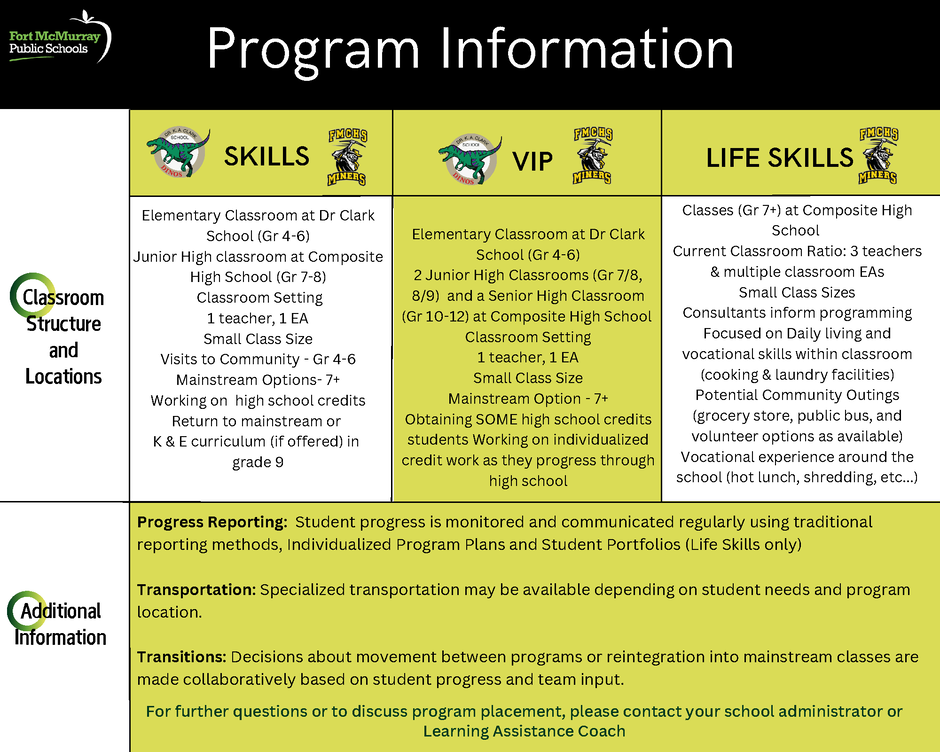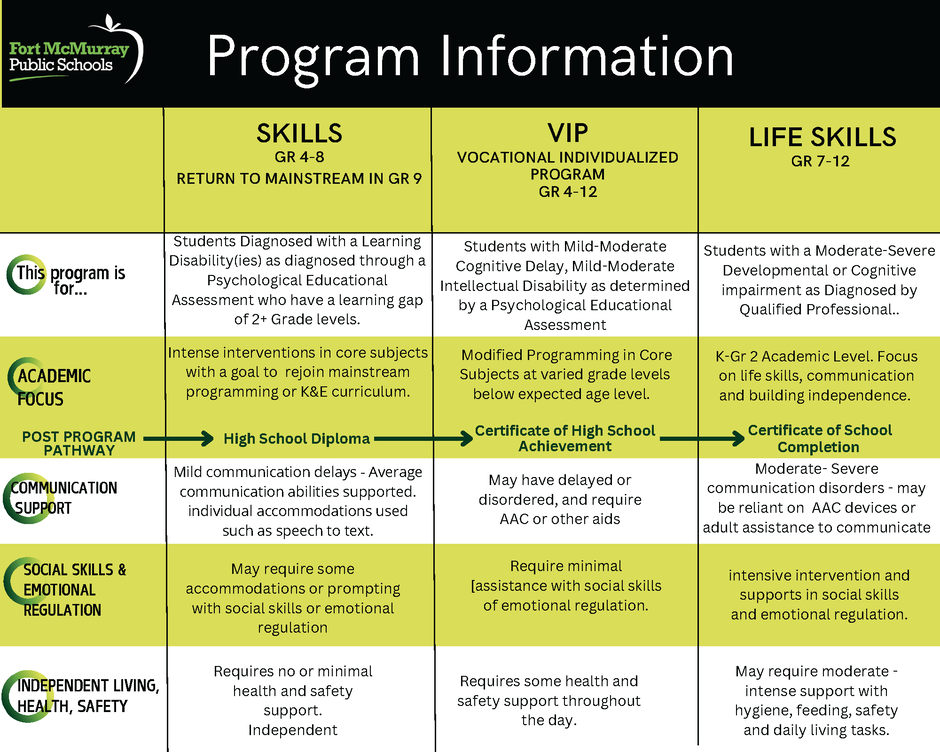The Fort McMurray School Division provides a range of supports and services to meet the diverse learning needs of all students. A dedicated team works collaboratively to understand each student’s unique learning style and to personalize program planning through a continuum of supports and services. With this individualized approach, students are typically successful in their local community schools.
We are committed to fostering an inclusive learning environment that aligns with Alberta’s vision for inclusive education. The following principles guide our student-centered and inclusive practices (Alberta Education, 2020):
- Recognize, value, and support diversity and differences in learners.
- Maintain high expectations for all students.
- Identify and respond to individual strengths and needs.
- Remove barriers to create accessible learning environments.
- Build capacity within our schools and staff.
- Collaborate with families and stakeholders to ensure success for all students.
Inclusive Education in Community Schools
All students enroll at their designated catchment school based on their home address, including all students meeting Alberta Education’s criteria for special education coding. In Alberta, the first and preferred option for educating students with exceptionalities or specialized needs is to be enrolled within inclusive settings at community schools. School staff, in partnership with families, develop an Individualized Program Plan (IPP) to outline strategies and supports that address the student’s specific needs and conditions for academic success.
Division Programs
Specialized Programs and Unique Learning Environments
If a student requires additional support beyond what the community school can provide, the school learning team may explore other programming options. This process begins with the principal and school learning team, who work collaboratively with families to identify appropriate specialized programs or unique settings. Decisions regarding specialized placements involve input from parents, school staff, and other education partners, as applicable, to ensure the best outcomes for the student. The Fort McMurray Public School Division has a variety of programs designed to support students with severe exceptionalities and needs. Click the links below to find out more about each program.
Specialized Programs
There are a variety of programs designated for students with severe disabilities. Click the links below for more information.
- Vocational Individualized Program
- SKILLS Program
- Life Skills Program
- Specialized Services (an option for early learners with FSCD approved contracts)
- CASA Classroom
Transportation for Programs
Students attending programs at schools outside of their catchment will have access to transportation options. Transportation pick-up and drop-off locations will be close to a student's home, but not necessarily door-to-door service. When determining student pick up and drop off locations, a number of factors are considered, including student safety, levels of independence, and mobility.


